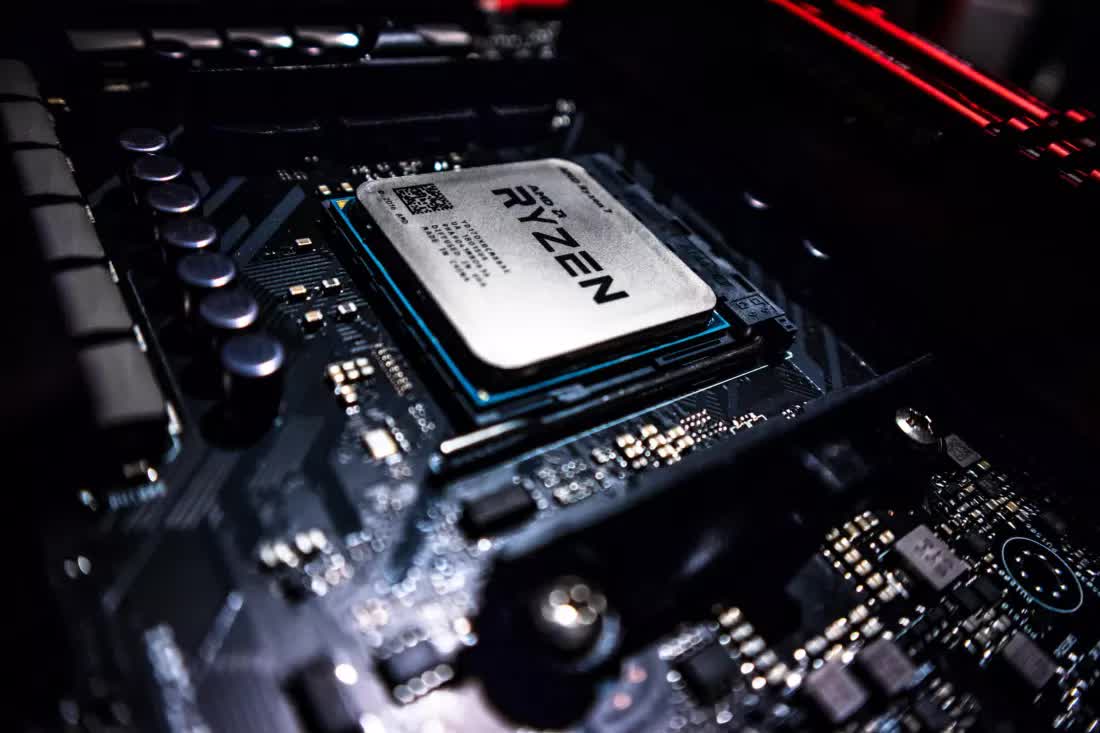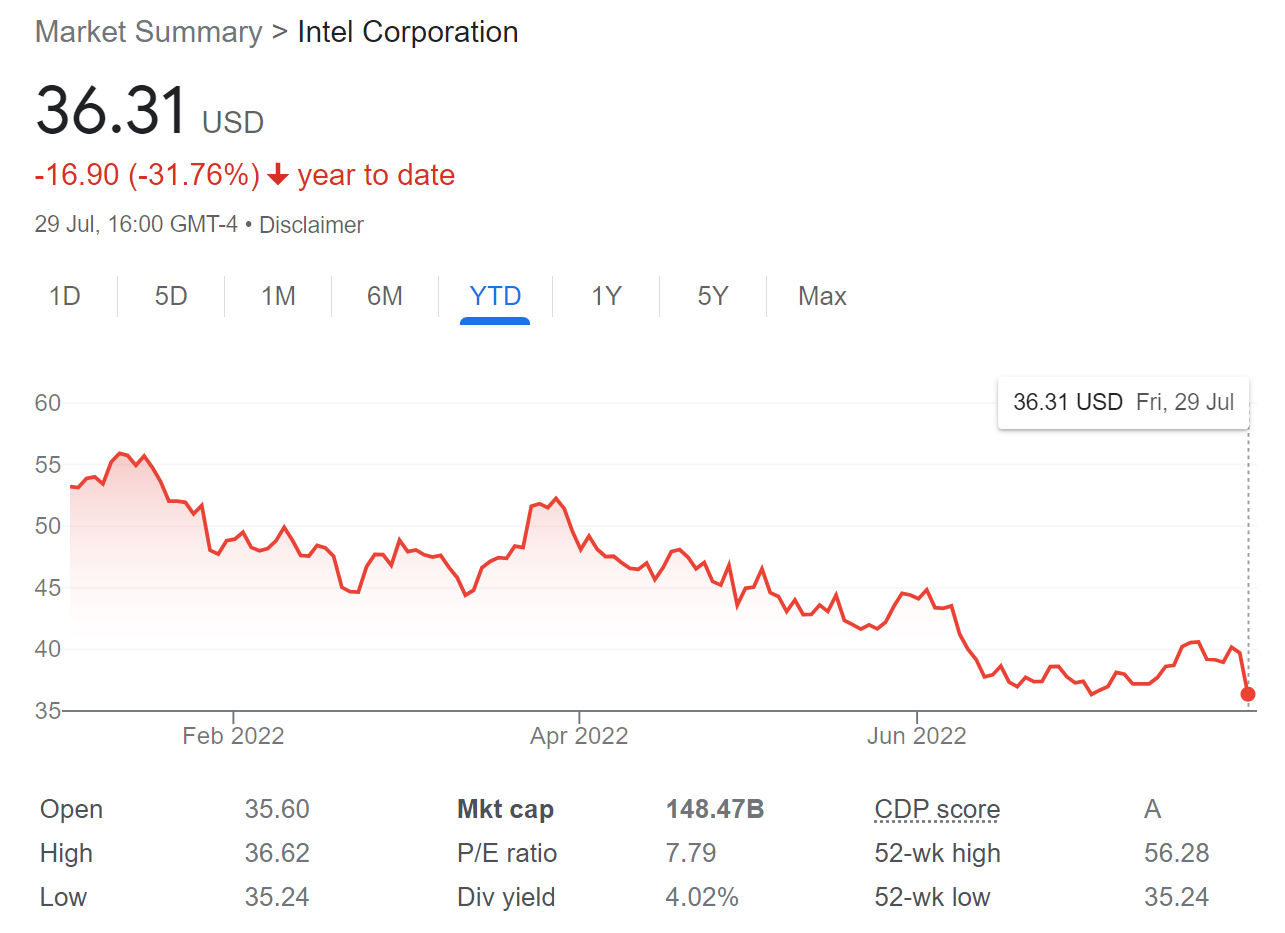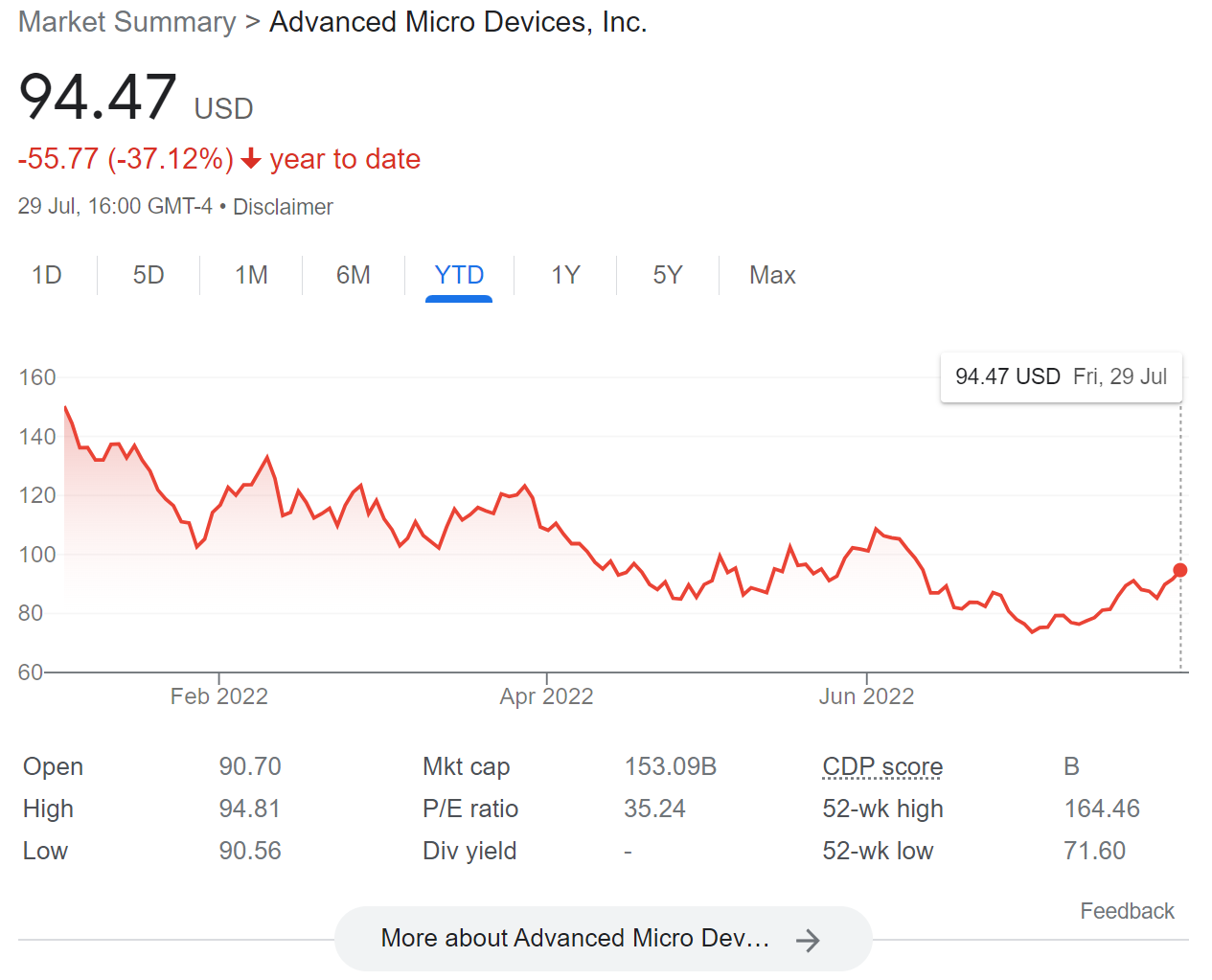What just happened? AMD has once again surpassed its processor (and soon-to-be GPU) rival Intel in terms of market capitalization. The companies swapped places after Intel revealed a very difficult quarter that saw it lose half a billion dollars. AMD, meanwhile, will report its second-quarter earnings tomorrow (Tuesday, August 2), when it's expected to confirm strong growth over the three months.
This isn't the first time AMD has passed Intel when it comes to market cap. That happened in February when team red's $49 billion all-stock takeover of Xilinx boosted its market cap to $197.75 billion, pushing past Intel's $197.24 billion by $51 million.
AMD only managed to stay ahead of Intel for a few weeks before Chipzilla once again became the more valuable company. But that changed in the wake of Intel's disastrous quarterly report in which it announced a 22% year-on-year revenue decline of $15.3 billion and a $454 million net loss, which represents a 109% YoY fall. Intel blamed the disappointing figures on the same factors that all faltering tech companies are pointing at: an economy teetering on the brink of recession, falling demand following the lockdown boom, and conservative consumer spending.
Intel's shares crashed by almost $5 to $36 on the back of the report, sending its market cap down to $148.47 billion at the time of writing.
While AMD isn't set to reveal its quarterly results until tomorrow, the company is expected to buck the doom and gloom trend by showing strong growth. Analysts project revenue of $6.5 billion, a 70% YoY increase. And while its shares are down considerably from the start of the year---something virtually every company is experiencing---the price has rallied by 28.7% in the last month, taking AMD's market cap to $153.09 billion, almost $5 billion more than Intel.
Market caps are calculated by multiplying the share price by the total number of a company's outstanding shares. They're mostly symbolic but can help illustrate a firm's current fortunes.
Intel remains dominant in the CPU market. The latest Steam survey shows its processors are found in 68.47% of participants' machines, but AMD has been eroding that share for years, thanks to the arrival of the Zen architecture in 2017. With Zen 4 and Raptor Lake launching later this year, it'll be interesting to watch the upcoming battle between these tech titans.
Intel also announced in its financial report that it would be shutting down its Optane memory business, is ceasing the development of 3D Xpoint technology, and had sold off its drone business.


